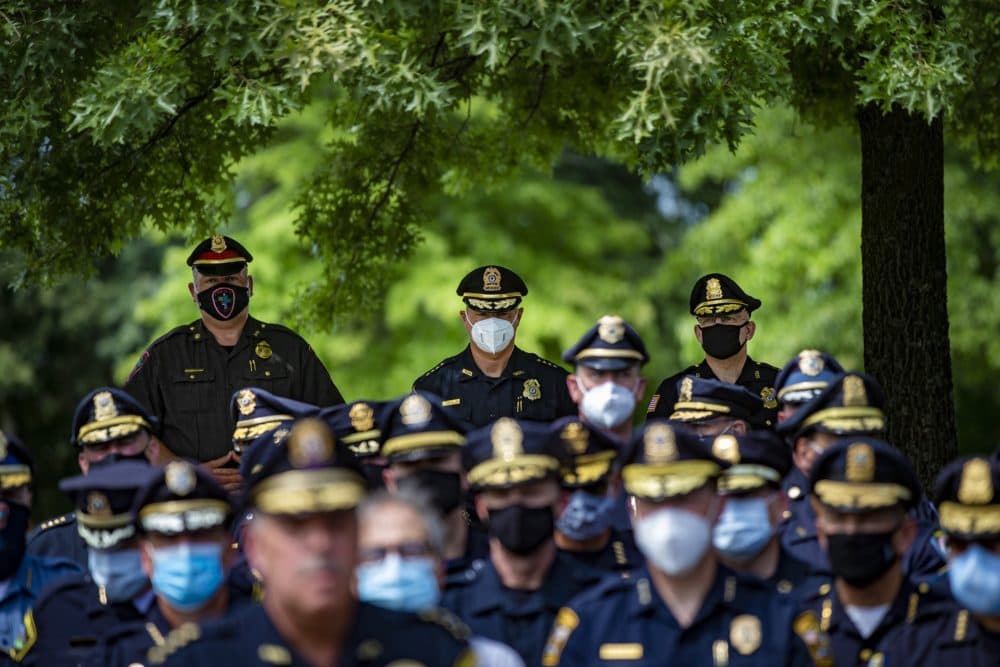
In the crucible of contemporary legal discourse, the spotlight has intensified on police reform laws, ushering in an era of transformative legislative changes poised to recalibrate the landscape of law enforcement practices. This article navigates through the labyrinth of recent legislative shifts, dissecting their impact on the dynamics of policing.
Navigating the Legislative Maze: An Overview of Police Reform Laws
The recent surge in demands for enhanced police accountability and transparency has catalyzed a wave of legislative responses. A multifaceted approach, these police reform laws aim to address systemic issues, ranging from use of force protocols to the establishment of independent oversight mechanisms.
Use of Force Policies: Redefining the Rules of Engagement
One pivotal area of reform revolves around the reevaluation of use of force policies. Recent legislative changes mandate a more stringent scrutiny of instances where force is employed, emphasizing de-escalation tactics and necessitating comprehensive reporting mechanisms for any use of force incidents. This shift underscores a commitment to minimizing the use of force and fostering a culture of de-escalation within law enforcement agencies.
Accountability Measures: Independent Oversight and Transparency
The cornerstone of recent legislative changes is the establishment of robust accountability measures. Independent oversight bodies are increasingly gaining prominence, tasked with investigating complaints against law enforcement officers. This move towards external scrutiny aims to enhance transparency, instill public trust, and ensure that law enforcement agencies are held accountable for their actions.
Community Engagement: Fostering Collaborative Policing
The essence of effective policing lies in community engagement. Recent legislative changes advocate for a paradigm shift towards community policing, emphasizing collaboration and proactive engagement between law enforcement and the communities they serve. The goal is to build trust, strengthen relationships, and align law enforcement priorities with community needs.
Training and Education: Shaping Law Enforcement Culture
In the realm of police reform laws, a significant focus is directed towards reshaping law enforcement culture through enhanced training and education. Legislative changes mandate ongoing training on topics such as de-escalation techniques, cultural sensitivity, and implicit bias recognition. The objective is to cultivate a more empathetic and culturally aware law enforcement ethos.
Data Collection and Reporting: Illuminating the Shadows
Transparency is a linchpin of the evolving legislative landscape. Recent reforms emphasize the importance of comprehensive data collection and reporting. Law enforcement agencies are now mandated to collect and disclose data on various aspects, including use of force incidents, officer misconduct, and demographic information of those involved. This data-driven approach aims to identify patterns, facilitate accountability, and inform future policy decisions.
Qualified Immunity: Navigating the Controversy
The concept of qualified immunity has become a focal point of debate within the sphere of police reform. Recent legislative discussions have explored potential modifications to this legal doctrine, balancing the need to protect law enforcement officers from frivolous lawsuits with the imperative of holding them accountable for constitutional violations. This nuanced debate seeks to strike a delicate equilibrium between officer protection and individual rights.
Technology Integration: Innovating Law Enforcement Practices
The integration of technology emerges as a catalyst for change in law enforcement practices. Recent legislative changes advocate for the adoption of cutting-edge technological solutions, including body cameras, dash cameras, and data analytics tools. These innovations aim to enhance transparency, provide an unbiased record of incidents, and enable law enforcement agencies to make informed decisions based on data-driven insights.
Mental Health and Crisis Intervention: Redefining First Response
Recognizing the intersection of mental health and law enforcement encounters, recent reforms underscore the importance of mental health and crisis intervention training. Legislative changes mandate that law enforcement officers receive training to effectively handle situations involving individuals in mental health crises. This emphasis on empathy and de-escalation aligns with a broader commitment to safeguarding the well-being of all community members.
Addressing Systemic Racism: A Pervasive Challenge
A thread woven through many recent legislative changes is the acknowledgement and confrontation of systemic racism within law enforcement. Legislators are increasingly addressing the root causes of racial disparities, seeking to dismantle ingrained biases and systemic injustices. These efforts aim to forge a path towards a more equitable and just law enforcement system.
Conclusion: Nurturing a New Era of Policing
In the wake of these legislative changes, the trajectory of law enforcement practices is undergoing a profound metamorphosis. The crucible of reform, marked by an amalgamation of transparency, accountability, and community engagement, holds the potential to nurture a new era of policing—one rooted in trust, fairness, and a shared commitment to justice.
